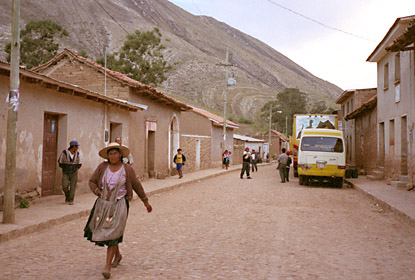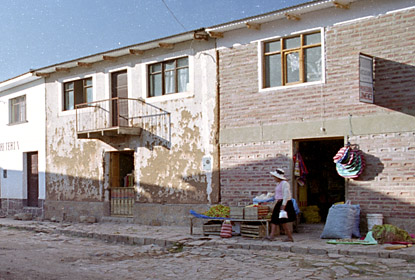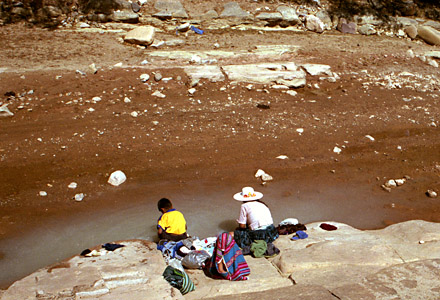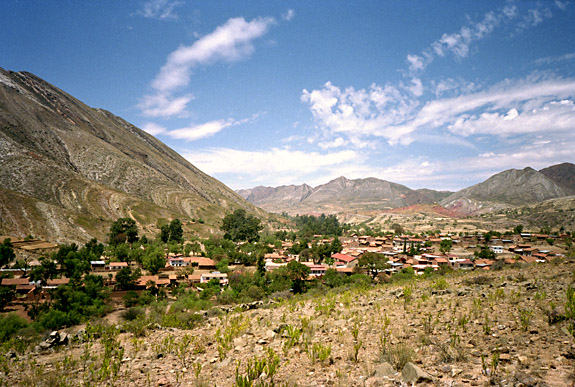Life in a Bolivian Village, Part 2
After the long day of caving, it turned out all of the restaurants in town were closed. I was worried it was my fault because I'd been so slow on the climb out, but at the same time...it was 9PM! Way too early to end dinnertime in South America! But of course, this is a very small town. Gonzalo decided to cook for us instead.
 |
 |
Breakfast was always at Gonzalo's home—which interestingly enough, was also a former patron house. Every other meal was at the same restaurant, as Gonzalo probably had an agreement. It seemed like there were at least 3 restaurants in town and the one we went to wasn't that good. On a tour, however, there's no choice.
The first day the food seemed passable—we were freezing cold and the hot greasy soup featuring meat, rice and various vegetables hit the spot. Unfortunately we would have this "kitchen sink" soup too many times in Bolivia. I grew to resent this restaurant. Everything was plain yet extremely salty, and not particularly tasty. Potatoes were in every meal and were often undercooked.
No one else seemed to mind, as this was the most popular spot in town. The second night we spent an excruciating time there, as the place became filled with locals. Gonzalo had brought scratchy DVDs from home to show us the ceremony of Tinku, but that was soon replaced with "La Musica Nacional!" a collection of bizarre music videos, mainly traditional but mixed with pop. It was awful, but interesting to watch the townspeople's enjoyment of this disc—they really dug the videos and turned the sound up to an ear-deafening level. This exact same DVD would haunt me later on a train ride out of Uyuni.
It was also fascinating from the perspective that if they'd only had electricity a couple years, how and when did the villagers get so into the TV/DVD concept? Leaving Umajalanta the first night, a young boy inside the electricity-free ranger station asked if he could ride with us back to town—the main reason being he wanted to watch TV. I imagine the townspeople travel between Torotoro and Cochabamba every once in a while and are thus aware of modern conveniences, but it made me wonder how soon they would become dependent on those conveniences.
 |
| Village family doing laundry. Yes, there's a child under that blanket. |
I would be interested in learning how the town progressed, from the introduction of water and electricity to the day when it's all commonplace: when the internet café is hopping with teenagers, when there's a DVD player in every home and the local restaurant shows satellite football games, when the first public Laundromat is introduced. Reason enough to check back in on little Torotoro a few years down the road.

View of Torotoro, nestled in the hills